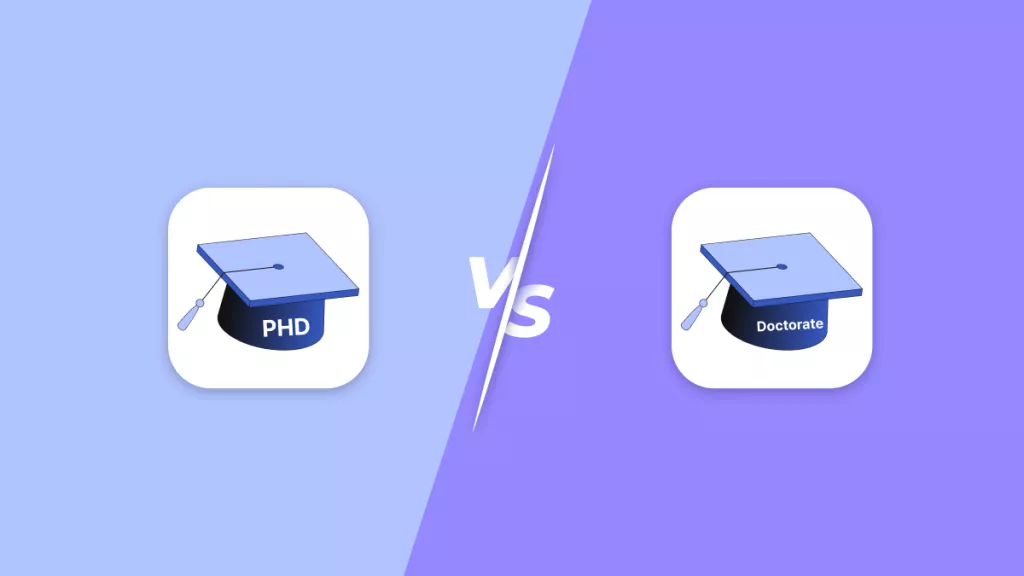Since the world’s existence, communication has always been highly valued because it keeps people connected and avoids conflicts between them. There is always room for arguments when the opinions and beliefs differ between the two parties. However, the debate is one way to settle the discussion between both parties without getting into conflict. We have highlighted a few debate topics for college students to participate in the discussion and smoothly convey their message.
Part 1. What Are Debates?
Defining the debate as a general discussion over a chosen topic won't be wrong. The two sides, often included in the debate, put their arguments and issues on the front and discuss it with different viewpoints and beliefs. Moreover, to simplify it, a debate is a much more organized and disciplined talk that is more competitive than a random one.
It may encompass a variety of formats, ranging from formal, structured competitions to informal, free-flowing, and interesting debate topics for college students. In essence, debating is a valuable tool for advancing our understanding of complex issues.
Part 2. Why is Debate Important to College Students?
Debating is important for college students because it helps them develop critical thinking, communication, and research skills. In today's world, where information is abundant and constantly changing, these skills are crucial for success in any career. Debating requires students to think deeply about complex issues, consider multiple viewpoints, and communicate their ideas clearly and persuasively.
In addition, debating helps students become better informed, more socially aware, and more empathetic to the viewpoints on good debate topics for college students.
Advantages of Debating Effectively
Look at the wide array of advantages students can benefit from while debating with their counterparts:
- Improves critical thinking skills.
- Makes you able to explain topics deeply.
- Helps you improve your research skills.
- It enables you to think quickly.
- Resolution of conflict is achieved.
- It makes you emphatic in understanding people’s beliefs.
- You get emotionally strong.
- Form meanings from complicated topics.
- You are able to present ideas comprehensively.
- It gives you a broader view of the world.
Part 3. How to Start a Debate for College Students?
Debating is an excellent way for college students to develop critical thinking skills, improve public speaking abilities, and engage in intellectually stimulating conversations. Starting a debate can seem daunting initially, but it can become a rewarding and enjoyable experience with some preparation and practice. Let’s have a better understanding of the topic by following the steps below:
Step 1. Choose One Topic
Before starting a debate, choosing a relevant and engaging topic is important. Ideally, the topic should allow for multiple perspectives and opinions, as this will encourage participants to think critically and argue persuasively. Some popular debate topics for college students in 2024 might include social, political, or ethical issues, such as gun control, climate change, or the death penalty. If you are unsure about the ideal topic for you, consider downloading UPDF and using its AI assistant to assist you in generating topic ideas.
Windows • macOS • iOS • Android 100% secure
Alternatively, you can upgrade to the paid version directly to get more benefits.
Step 2. Decide The Affirmative and The Negative
To ensure a structured and productive debate, it is essential to establish affirmative and negative positions before starting the debate. The affirmative and negative positions refer to the sides of an argument that the opposing teams will defend in a debate. The affirmative team argues in favor of the topic statement, while the opposing team argues against it. Also, you need to decide who is affirmative and who belongs to the negative.
Step 3. Explain The Debate Rules
Students or organizers need to explain the debate rules before starting a debate. To ensure the debate is productive and respectful, it's important to establish rules and guidelines that all participants must follow.
The rules often include guidelines for how much time each participant has to speak, how many interruptions are allowed, and how rebuttals should be handled. Also, organizers can mention what points college students who take part in this debate can focus on.
Focusing Points for Students
The students, however, should focus on a variety of key points regarding debate topics for college students with answers, such as:
- Researching the topic thoroughly.
- Identifying the audience and their beliefs.
- Define the purpose, whether to inform or persuade.
- Develop strong arguments based on evidence.
- Practice respectful communication during the debate.
Step 4. Give Time to Research
After having debatable essay topics for college students, each student must conduct research and gather information to support their arguments effectively. Researching beforehand can help them form well-informed opinions and communicate their ideas. Additionally, taking notes on a UPDF PDF Editor can effectively organize and annotate research material.
This tool allows users to highlight, underline, and add comments to important information. Moreover, this feature can help students identify and remember essential details while reading lengthy research materials.
Also Read: 5 Best Note-taking Apps for Students
Step 5. Create a Plan
Debates can be an exciting way to engage with others and explore important topics. However, to make the most of a debate, it's essential to have a plan in place. Whether holding a debate, participating in a formal debate, or having a discussion, the plan will help you organize your thoughts and present your ideas effectively. For instance, as an debate organizer, you need to plan when and where to hold the debating, how to hold and start the debating, what you need to do before, during and after the debating, etc.
Out of all these options, there are a few other things one should notice as an organizer when they are setting up debate for college students:
- The time parameters of the debating event.
- Prize settings of the event, if needed.
- Format of the debate.
- Debate Process.
- Debate place.
- etc
To simplify the process, we recommend using UPDF to create and customize your plan directly. If offers a wide range of planner templates for convenient customization, and offers versatile capabilities to satisfy all your editing needs. Let's download UPDF for a free trial.
Windows • macOS • iOS • Android 100% secure
Creating a debate plan is now easy with UPDF. You can customize it per your needs and easily track the debate for college students. Have a look below to learn how to customize the daily planner for your debate:
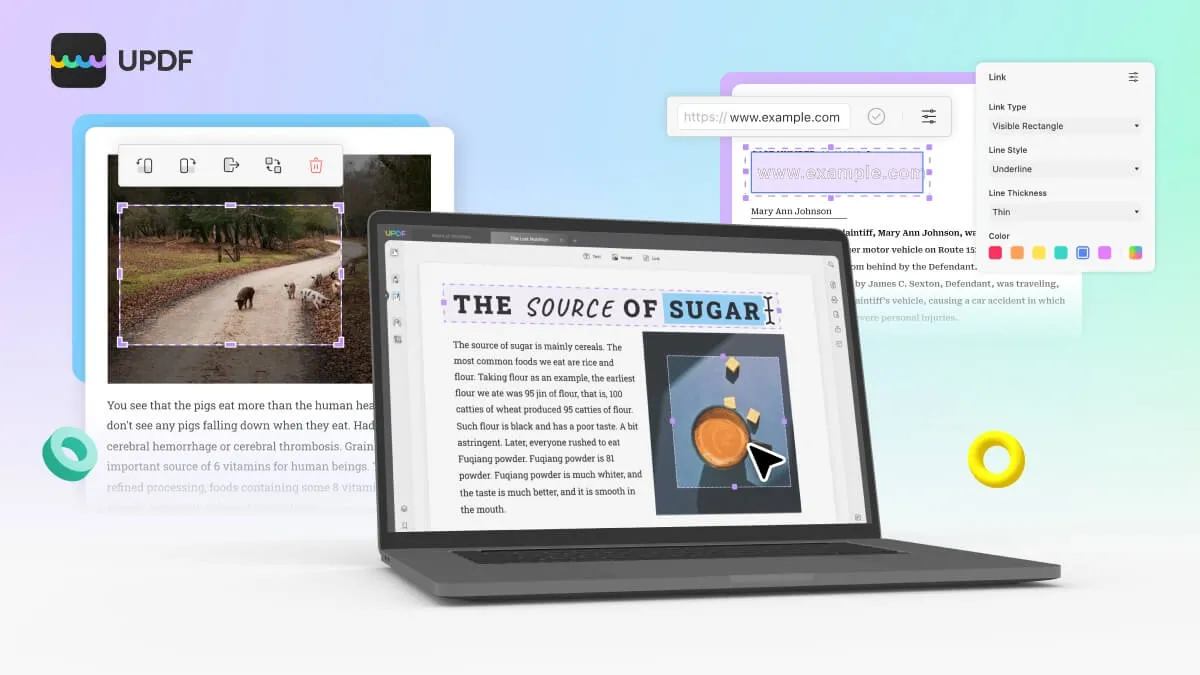
Step 1: Download and Open Template
Open the UPDF tool on your system. After that, click on the "Open File" button at the center of the window and browse your daily planner template created by UPDF for customization. Then, tap the required editable fields to add your preferred content effectively.
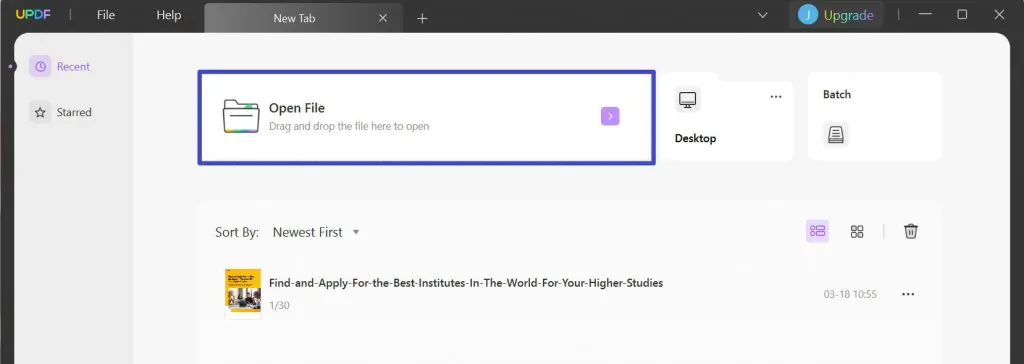
Step 2: Edit the Required Fields
If you want to add additional text to your template, head to the left panel and select "Edit PDF" mode. Select the "Text" tool and add the required text in the preferred field. You can also choose and adjust text font, size, and color to insert textual information.
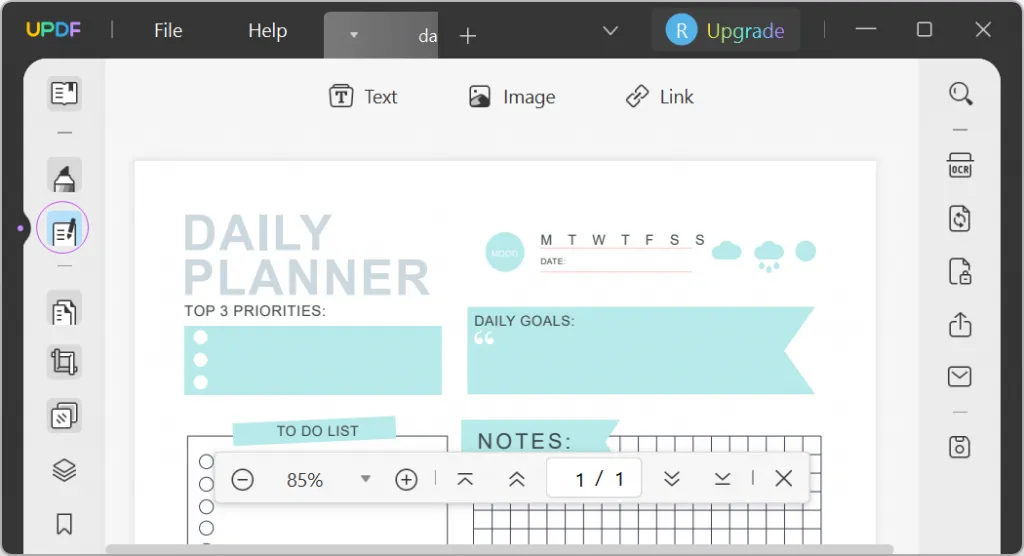
Step 3: Set the Printing Settings and Print It
When you are finished editing, press the "File" tab at the top left corner, and click the "Print" button. Fill in all the required options on the new window and adjust the printing properties. Finally, click on the "Print" button to print your file and use the daily planner for your debate.
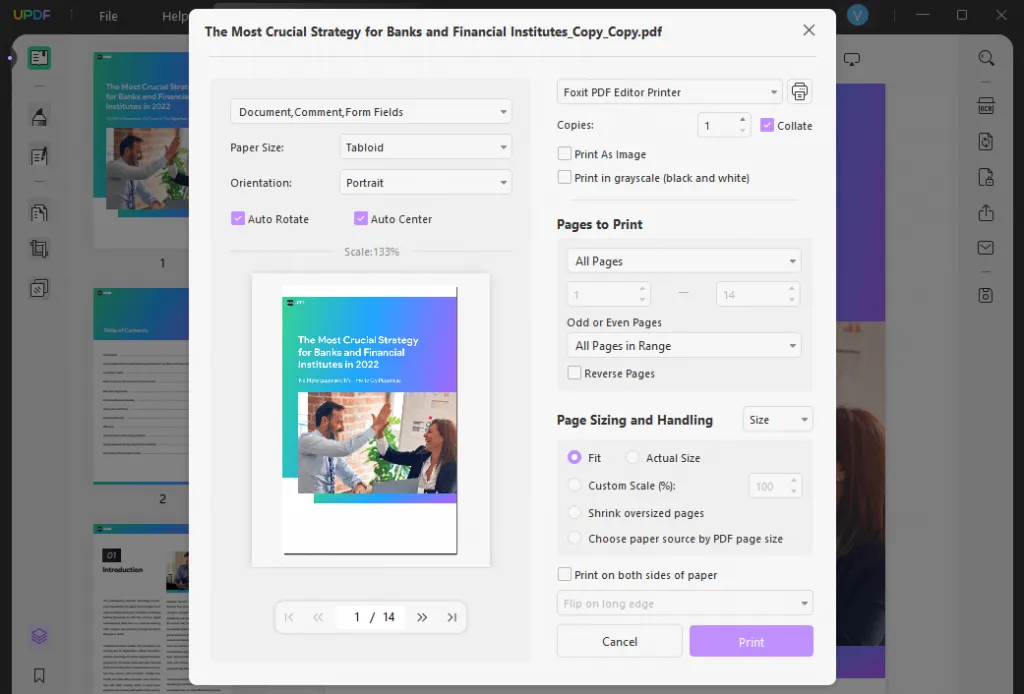
Step 6. Hold and Start the Debate
“Hold the debate” refers to organizing the entire event, while the “start the debate” phrase explains the initiation of the discussion or argument after you’ve successfully organized and formulated everything involving the debating event. To hold and start the debate, you will have to have a good opening, follow up the debate process, take a control of time, etc.
Step 7. Discussion and Feedback
Discussions after debate are vital for providing feedback on debate performance and encouraging critical thinking among college students. It helps them to evaluate the arguments presented, assess the evidence used, and identify any logical fallacies that may have been employed. Moreover, college students can improve their communication skills by discussing and providing feedback on the debate. Moreover, those who take part in the debate also want to get feedback about their performance from organizers and audiences.
Part 4. What Are Good Debate Topics for College Students?
Choosing a good debate topic can significantly impact the quality of the debate and the engagement of the participants and the audience. A well-chosen debate topic can stimulate critical thinking, encourage research and preparation, and generate lively discussions. However, the topic should be relevant, current, and significant, offering different perspectives and potential solutions.
Below we have listened down the 50 fun debate topics for college students that can help them arrange a healthy debate with colleagues and share their perspectives on the given topic:
- Candy should be given as a reward in the classroom.
- Clowns are more scary than funny.
- Modern music is better than classical music.
- Xbox is better than PlayStation.
- Football is better than Soccer.
- People should be allowed to go barefoot anywhere they want.
- It would be better to be able to fly than to be able to turn invisible.
- People shouldn’t have to go to school or work on their birthdays.
- It’s better to be the superhero than the sidekick.
- Daydreaming is better than nightdreaming.
- Darth Vader was ultimately a hero, not a villain.
- It would be better to live under the sea than in space.
- Superheroes should have to pay for all the damage they cause.
- Being famous is not all that great.
- Does pineapple belong on pizza?
- Which comes first, the cereal or the milk?
- Are unicorns real?
- What is the correct way to put toothpaste on the brush? Dry or Wet?
- What is the correct way to pronounce data?
- Which way should the toilet paper be facing?
- Can you train a fish to do tricks?
- Is Google a verb or a noun?
- Would you rather have dinner with a millionaire or 10k?
- Is a hotdog a sandwich?
- Is it okay to wear socks with sandals?
- Is it a crime to name a dog a bear?
- Are dreams tv for your brain?
- Emojis are superior communication.
- Dodgeball is not made for kids.
- Ginger ale is the best medicine.
- What is the proper way to cut a piece of toast?
- Putting on your left shoe first says a lot about someone.
- Can you smell the air?
- Can ghosts get scared?
- Why does Uno ruin friendships?
- Should superheroes be allowed to have secret identities in college?
- Are race car drivers athletes?
- Are superhero movies the death of romantic comedies?
- Who deserves to be called the real football? American football or Soccer?
- How steep do stairs need to be until they qualify as a ladder?
- Junk food has just as much nutritional value as healthy food.
- Does everyone have an accent?
- Why does pizza taste better in a square than in a circle?
- Cheerleaders are the most fearless athletes.
- Is peanut butter a wet or dry ingredient?
- Can pizza rolls be considered hot pockets?
- A diploma is not a degree.
- Professors are just professional students.
- Instagram is a valid form of research.
- Reading the syllabus should be counted for a grade.
Final Words
Ultimately, the debate topics for college students in 2025 cover a wide range of relevant and thought-provoking subjects. These topics can help students develop their critical thinking, public speaking, and research skills while encouraging them to engage in meaningful discussions and explore different perspectives.
But to make your debate even more effective, why not use a PDF editor tool like UPDF? With this tool, you can easily annotate, highlight, and edit your debate notes and research, making it easier to prepare for your next debate.
Windows • macOS • iOS • Android 100% secure
 UPDF
UPDF
 UPDF for Windows
UPDF for Windows UPDF for Mac
UPDF for Mac UPDF for iPhone/iPad
UPDF for iPhone/iPad UPDF for Android
UPDF for Android UPDF AI Online
UPDF AI Online UPDF Sign
UPDF Sign Read PDF
Read PDF Annotate PDF
Annotate PDF Edit PDF
Edit PDF Convert PDF
Convert PDF Create PDF
Create PDF Compress PDF
Compress PDF Organize PDF
Organize PDF Merge PDF
Merge PDF Split PDF
Split PDF Crop PDF
Crop PDF Delete PDF pages
Delete PDF pages Rotate PDF
Rotate PDF Sign PDF
Sign PDF PDF Form
PDF Form Compare PDFs
Compare PDFs Protect PDF
Protect PDF Print PDF
Print PDF Batch Process
Batch Process OCR
OCR UPDF Cloud
UPDF Cloud About UPDF AI
About UPDF AI UPDF AI Solutions
UPDF AI Solutions AI User Guide
AI User Guide FAQ about UPDF AI
FAQ about UPDF AI Summarize PDF
Summarize PDF Translate PDF
Translate PDF Explain PDF
Explain PDF Chat with PDF
Chat with PDF Chat with image
Chat with image PDF to Mind Map
PDF to Mind Map Chat with AI
Chat with AI User Guide
User Guide Tech Spec
Tech Spec Updates
Updates FAQs
FAQs UPDF Tricks
UPDF Tricks Blog
Blog Newsroom
Newsroom UPDF Reviews
UPDF Reviews Download Center
Download Center Contact Us
Contact Us


